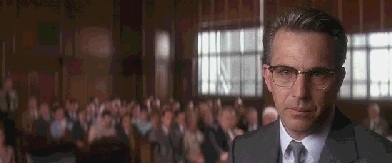The JFK 100
Preface

"It's up to you."

"It's up to you."
I first saw Oliver Stone's JFK during its theatrical release in December 1991. I was 22 years old, and, prior to that evening, I knew next to nothing about the assassination of John F. Kennedy.It is no exaggeration to state that seeing the movie changed my life. Since that evening, I have devoted thousands of hours to the study of what it was that happened that tragic day in Dallas, why it happened, and why there is such persistent confusion surrounding it.
While it took very little research to learn that some of JFK's claims about the assassination and the ensuing investigations were in error, sometimes grossly so, I believed for some time that the film was essentially credible in its key arguments. It was only after some eight or nine years that it began to dawn on me that I was wrong; that I had begun with a conclusion and given credence only to facts that supported my preconceptions; and that Oliver Stone had done the same thing, even to a larger extent than I had.
And, while a movie is of minuscule significance compared to the realities of history and the tragedy of a slain President, I began to understand that, when it comes to the seemingly endless bewilderment that surrounds John F. Kennedy's death, Oliver Stone's JFK, the original instigator of my quest for the truth, is actually part of the problem, not part of the solution.
This realization has led me to write The JFK 100, detailing one hundred discrete errors of fact and judgment in Oliver Stone's movie. Some are more complicated than others; some matters are purely factual, while others call into question more subjective decisions made by the filmmaker; all, however, are relevant to the substance of Oliver Stone's arguments and the validity of his conclusions.
The JFK 100 is not a rant about Hollywood. It does not attack Oliver Stone for taking liberties with the facts for purely dramatic purposes. For example, the reader will not find criticisms of Stone for crediting his fictional Jim Garrison with information developed by other investigators, or for fictionalizing Garrison's closing summation to the jury in order to economically incorporate a greater amount of material than was contained in the DA's authentic statement.
Stone will not be criticized for adding a fictional female Assistant District Attorney to Garrison's staff (an inconsequential nod to 1990s-era sensibilities); or for having the assassination of Robert F. Kennedy occur on the eve of the Clay Shaw trial, when it actually occurred half a year before the trial began (an immaterial distortion for dramatic reasons).
Decisions such as these fall well within the bounds of artistic license. They are not material to the "case" Oliver Stone is arguing; they do not reflect upon the validity of Stone's theories or the guilt or innocence of his suspects. Such techniques as the rearranging of events, the collapsing of time, and the creation of composite characters are not invalid in and of themselves. When utilized solely in the service of telling the story and enhancing its dramatic possibilities, such techniques are perfectly legitimate.
It is when, intentionally or otherwise, such devices serve to mislead the viewer and distort the true nature of events that objection must be taken. That is what this article does.
Dave Reitzes
October 31, 2001